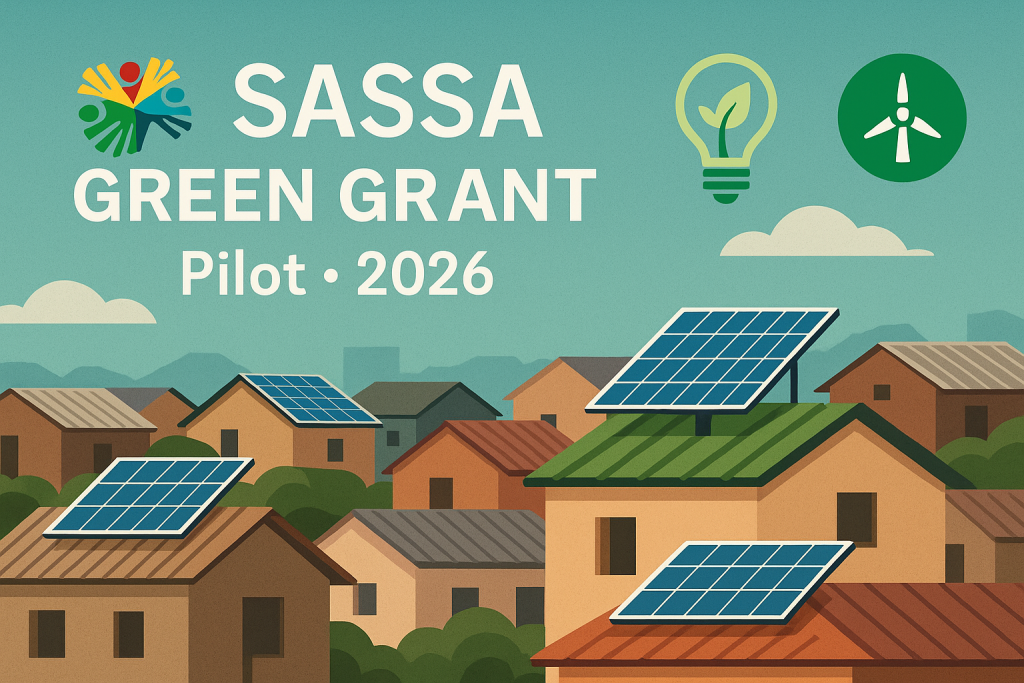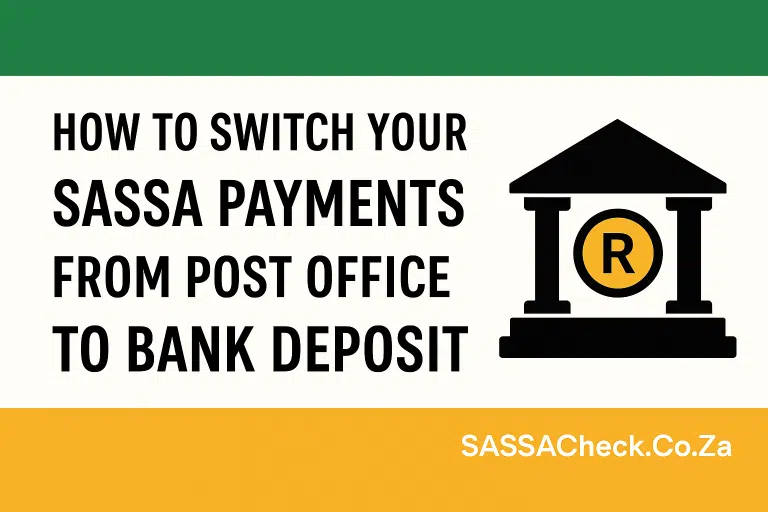SASSA Considers Green Grant Pilot for Solar Powered Homes in Settlement by 2026
Load-shedding has become one of the most serious threats to South Africa’s social and economic stability. Low-income households, especially in informal settlements, bear the heaviest burden as they cannot afford generators or battery storage. Recognizing this, officials at SASSA and the Department of Social Development are now exploring an innovative idea: a “Green Grant” pilot, which would provide special top-ups to households installing rooftop solar panels or batteries.

The pilot, expected in 2026, would be the first social grant program in Africa explicitly tied to renewable energy adoption. It signals a shift in how South Africa thinks about welfare — not only protecting vulnerable communities financially, but also empowering them to participate in the energy transition.
Why a Green Grant
For years, grant beneficiaries have been excluded from South Africa’s energy solutions. Incentive schemes for solar adoption — such as tax rebates and VAT relief — primarily target middle- and upper-income households who can afford the upfront cost of solar panels. Poor households in informal settlements have been left out of this energy revolution.
A Green Grant pilot would address this inequity by directly subsidising solar adoption for the poor. The logic is twofold:
- Social justice — ensuring that vulnerable families share in the benefits of renewable energy.
- Grid relief — if thousands of grant beneficiaries adopt solar, Eskom’s pressure could ease, reducing outages for everyone.
How the Pilot Would Work
The proposal under discussion involves a monthly grant top-up for beneficiaries who can prove that they have installed solar panels, small inverters, or battery packs. The subsidy would help cover maintenance costs and loan repayments, making solar more sustainable.
Beneficiaries may also receive once-off installation vouchers, issued through accredited community-based solar providers. These vouchers could cover 20–30% of installation costs, with the rest financed by micro-lenders or cooperatives.
The program would initially target urban informal settlements in Gauteng and Cape Town, where solar uptake potential is high, and gradually expand to rural areas.
Expected Benefits
- Energy Security for Vulnerable Families
Poor households would have reliable power for lighting, refrigeration, and phone charging — reducing daily hardships. - Lower Energy Bills
Solar systems could cut electricity spending by 30–40% monthly, freeing up income for food and essentials. - Climate Alignment
By linking welfare to renewable energy, South Africa would pioneer a welfare model that aligns with global climate goals. - Community Development
Training local youth as solar installers could create jobs within settlements.
Risks and Challenges
- Upfront Cost Barrier
Even with vouchers and subsidies, solar installations remain expensive. Government will need strong partnerships with NGOs, cooperatives, and private funders. - Maintenance Risks
Without proper training, systems may fail prematurely. Technical support structures will be essential. - Fraud Concerns
Officials must prevent misuse of funds or false claims of installations. Linking grants to verified suppliers and using geo-tagged proof of installations could be solutions. - Fiscal Strain
Treasury must balance the cost of subsidies with competing priorities like healthcare and education.
International Lessons
Countries like Bangladesh have pioneered solar home systems for low-income households, supported by microfinance. In Kenya, community-based solar cooperatives have enabled widespread adoption. These models show that with the right design, poor households can be integrated into renewable energy programs successfully.
South Africa’s innovation would be unique: tying the program directly to social grant mechanisms rather than separate donor-led projects.
Guidance for Beneficiaries and Policymakers
For beneficiaries:
- Prepare to register interest in the pilot when announced.
- Work with accredited providers only.
- Understand long-term costs and maintenance responsibilities.
For policymakers:
- Target the most vulnerable settlements first.
- Ensure transparency in voucher distribution.
- Combine the grant with skills training for local youth.
Conclusion
The proposed SASSA Green Grant pilot is more than just welfare reform it is a bold attempt to merge social justice with climate action. By subsidising solar adoption in informal settlements, South Africa would not only protect its poorest citizens from energy insecurity but also strengthen its national energy transition.
If launched in 2026, the Green Grant could become a global model: proving that climate policy and social protection can work hand in hand to build a fairer, cleaner future.






